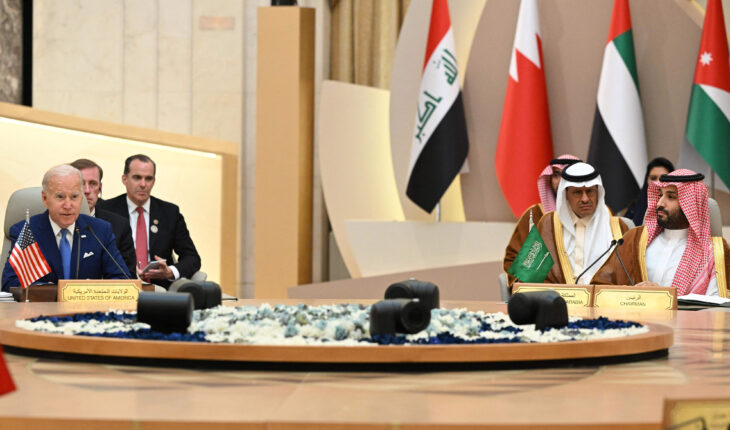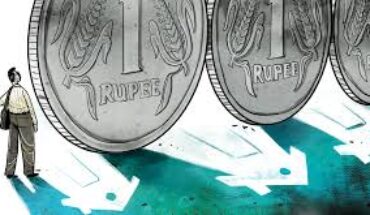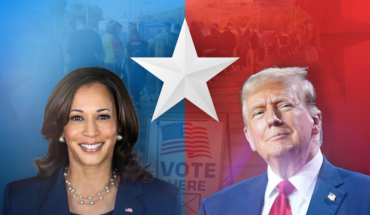The outcome of the ongoing secret parleys between the Biden Administration and Saudi Arabia is expected to be scripting a new financial arrangement in world trade.
The financial capitals across the continents are expecting that the deal might be announced much sooner than expected. If Saudi Arabia did not stress about replacing the dollar by the Chinese currency,yuan, for oil trade, it might get American civil nuclear technologies. To get these technologies, it has to conduct its huge oil trade in American dollars. It may also prevent China from obtaining Saudi oil in yuan.
The indications, according to American media, including the Wall Street Journal, are that this initiative of the Biden Administration reminds us of the 80-year old Bretton Woods Agreement of 1944. It had announced the crucial role of the American dollar as a world currency for exchange of goods and services.
In 1971, the then US President Richard Nixon had ended the gold convertibility of the dollar. Earlier, there used to be the support of gold for each dollar. The situation had worsened further during the 1973 oil crisis. It, perhaps, led to the close understanding between the US and Saudi Arabia restricting the oil producing country to trade only in dollars.
A Boost to Dollar : It is being widely believed that unless the US-Saudi Agreement is announced, the American currency, which already has lost much of its sheen, might just be crippled. Meanwhile, the worldwide media is abuzz, including a number of social media platforms, that Saudi Arabia has refused to to extend its 50-year old relationship with the USA regarding its reinvestments of the dollars acquired by selling its crude oil to a strategic ally.
The observers and analysts genuinely believe that with the shell oil available to the US, its dependency on West Asian oil has decreased. During the decades, seventies , eighties and nineties, the US was importing crude oil supplies from West Asia, specially Saudi Arabia for its energy requirements. However, the situation has undergone paradigm changes following the availability of quantity petroleum products in its neighborhood.
In this backdrop, it is being rightly interpreted that by not renewing the existing arrangements l, Saudi Arabia would soon be trading in other currencies. The Chinese have already initiated oil trade with Saudi Arabia in yuan.
BRICS Initiative : The association comprising India, China, Russia, Brazil and South Africa under its nomenclature, BRICS, has been promoting commodity based trade without using American dollars as an international currency.
These efforts are being augmented by the blockchain enabled digital currencies. These developments indicate the ongoing changes in the economic and financial dynamics of international trade, thus promoting alternative currencies.
Apart from the threat of yuan to the US dollar, Norway’s 1.4 trillion oil-based economy might also cause headaches to Washington in coming years. It is already trading in Euros.
The Eachoe in Social Media : It is true that neither Saudi Arabia nor the US has officially discussed the informal 50-year old trade arrangement ensuring use of the US dollars as an exclusive currency for oil trade. Yet, it is obvious that the informal arrangements made to regulate the current arrangements for investing dollars accumulated with the oil producing countries have become redundant. It, perhaps, is being echoed in the past one week on various news channels and publications. They have been discussing the implications of the discontinuation of the understanding reached between Saudi Arabia and the US on June nine, 1974. Since no agreement was signed for the renewal of this understanding, the mechanism is believed to have ended now. There was no need to end it by formal notification, therefore, it cannot be stated that Saudi Arabia has refused to renew the agreement.
From this perspective, Paul Donovan, Chief Economist of the UBS Global Wealth, perhaps , is correct, that the refusal of Saudi Arabia to renew the Accord is incorrect, he has further described the discontinuation of this arrangement as just fake news. Since there have never been any treaty or official arrangements in this context, therefore, the discontinuation of this mechanism cannot be highlighted as a diplomatic setback to the USA
It may be recalled that the two countries had set up a joint commission for regulating the huge dollars acquired by Saudi Arabia as well as other oil producing countries in West Asia.
The oil producing countries could invest their petrodollars in America securities, thus strengthening the US dollars as a world currency in global trade. Indirectly, it was also subsidizing the American economy by offering almost interest free funds.
The Fragile Trade System : It is yet to be ascertained the impact on the world economy, if ihe petrodollars invested in American securities were suddenly encashed. However, it might reduce the market value of the American dollar leading to a chaotic situation in global trade. It means the sustenance of the American dollars depends upon the oil rich countries as well as China. The Biden Administration couldn’t encash the American securities when they matured a few months ago.
In order words, the fragile financial systems across the continents depend upon the counties, including China, having invested in American securities. If China encashes
It’s long-term bonds, the plight of the US currency will be just pathetic
In India, the implications of the shedding off the huge collection of US dollars by Saudi Arabia are being studied. Meanwhile, the financial markets are just awaiting the outcome of the American talks with Saudi Arabia.
Gopal Misra has been associated with national and international media. His books on journalism and geo-politics have been well-appreciated. Views are personal.






